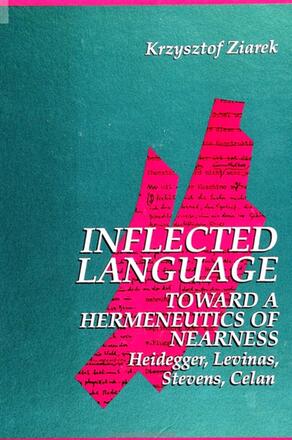
Inflected Language: Toward a Hermeneutics of Nearness
Heidegger, Levinas, Stevens, Celan
Alternative formats available from:
Proposes to rethink the ontological and ethical dimensions of language by rereading Heidegger’s work and by engaging Levinas’ ethics and contemporary poetics.
Description
In the aftermath of poststructuralist debates, Inflected Language proposes to rethink the ontological and ethical dimensions of language by rereading Heidegger's work, more specifically his reflection on poetry, and by engaging Levinas' ethics and contemporary poetics. Building on the readings of Heidegger, Levinas, Stevens, and Celan, the author contends that, against common misinterpretations, their approach to language forces us to reexamine the very basis of relations to alterity, whether that of the world, things, or people.
According to the new view of language offered in these works, thought's job is not, first and foremost, cognition in the sense of understanding, calculations, and definition, but in securing alterity against cognitive assimilation instead. In this context, Inflected Language reshapes the current philosophico-literary debate about language by showing how the apparently neutral differential play of signification is already invested with ethical and worldly signification. In order to avoid obliterating this elusive signification in theorizing language, Ziarek proposes following a new mode of reading—a post-Heideggerian "hermeneutics of nearness," which foregrounds the poetic element in language and its ways of figuring the other.
Krzysztof Ziarek is Assistant Professor of English at the University of Notre Dame.
Reviews
"The book is a valuable addition both to the discussion of ethics in continental philosophy and to the employment of continental philosophy for the reading of poetry. " — Robert Bernsaconi